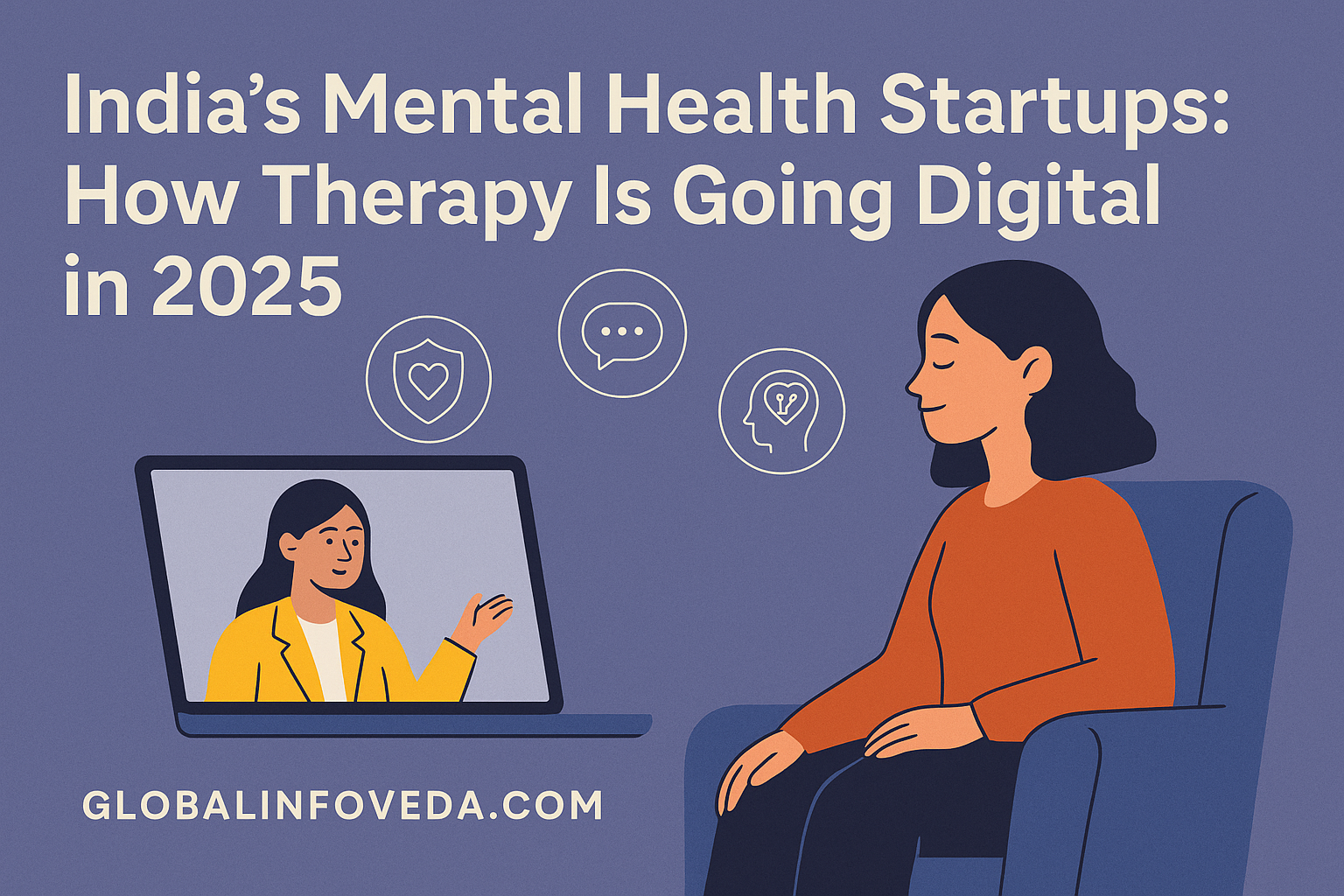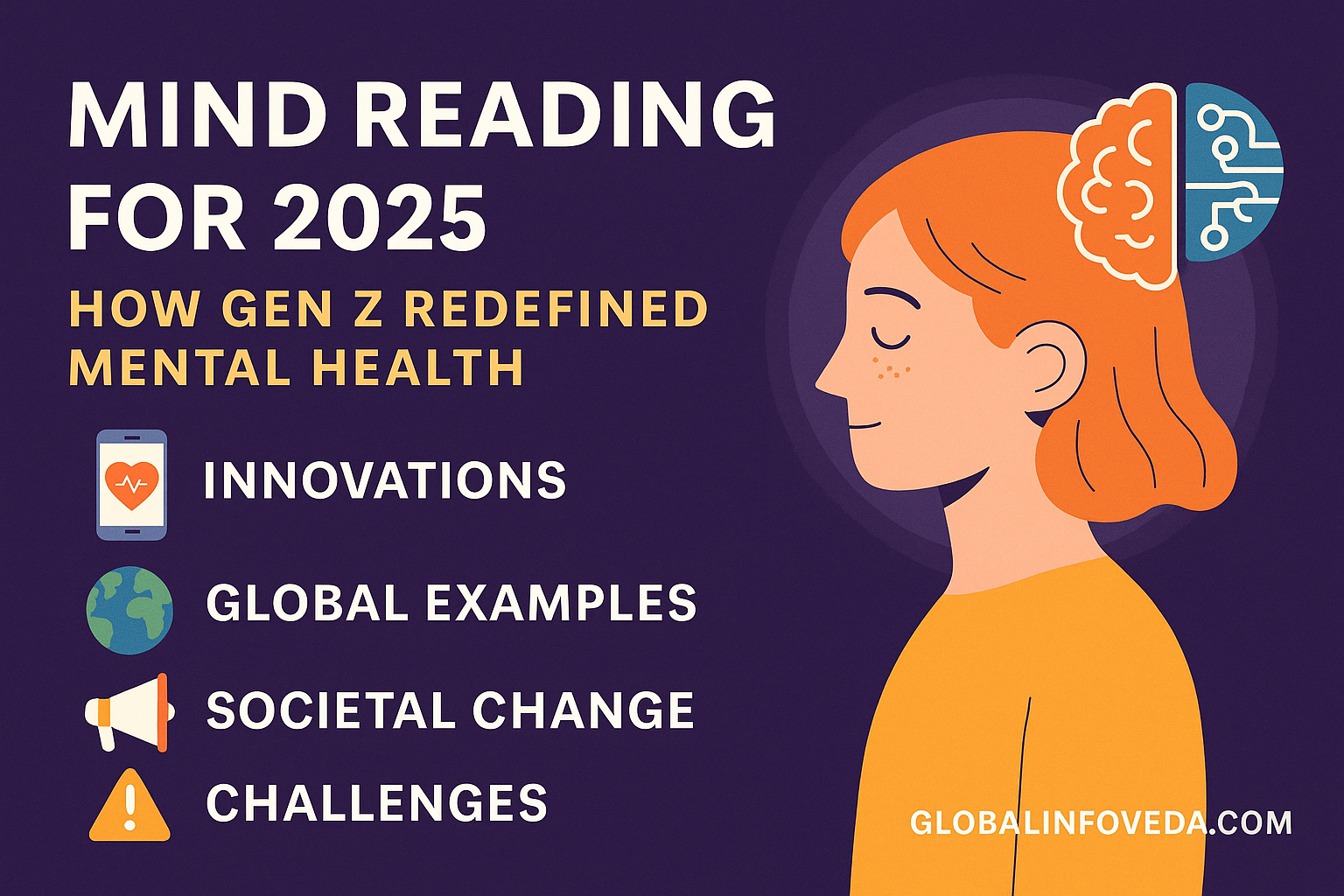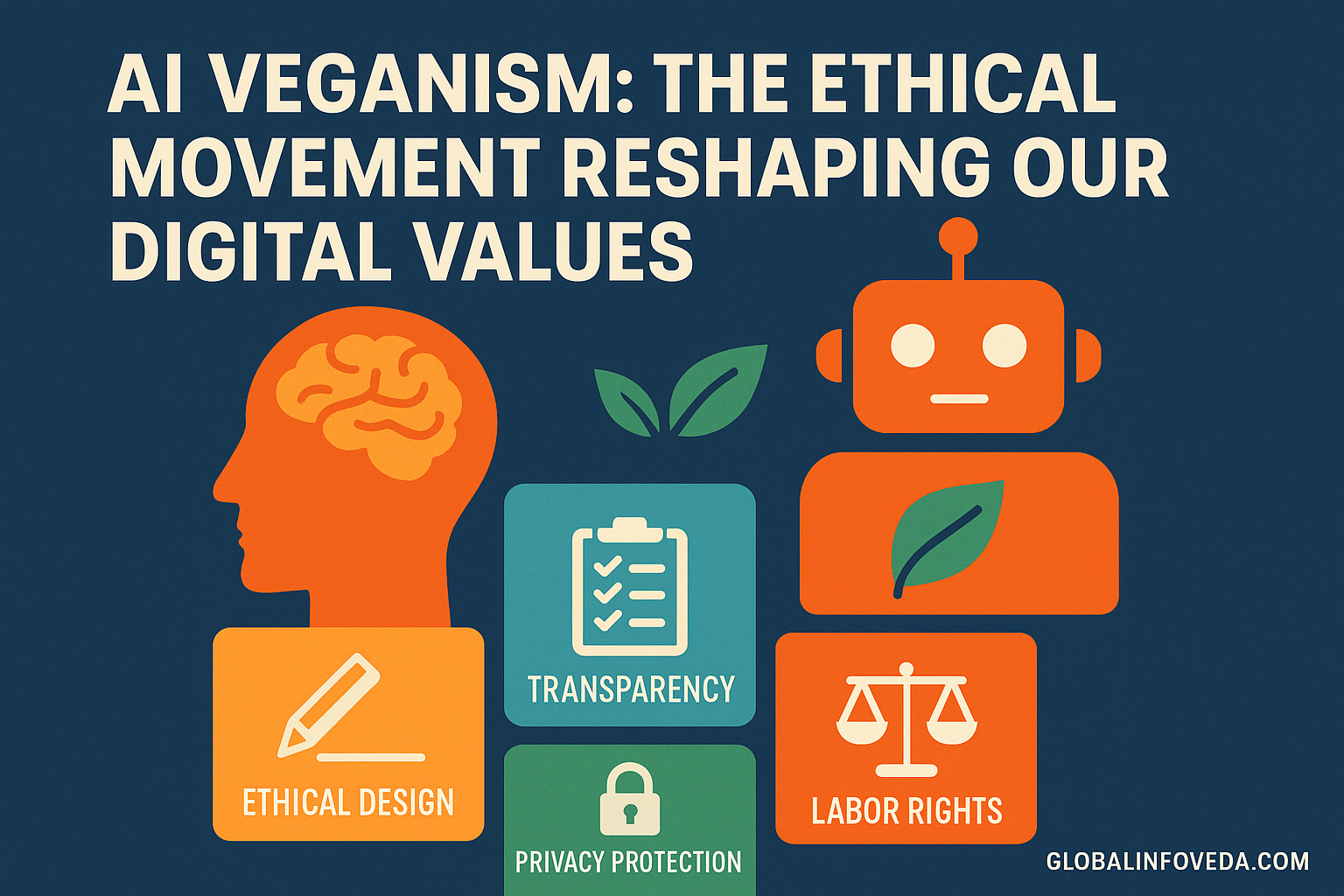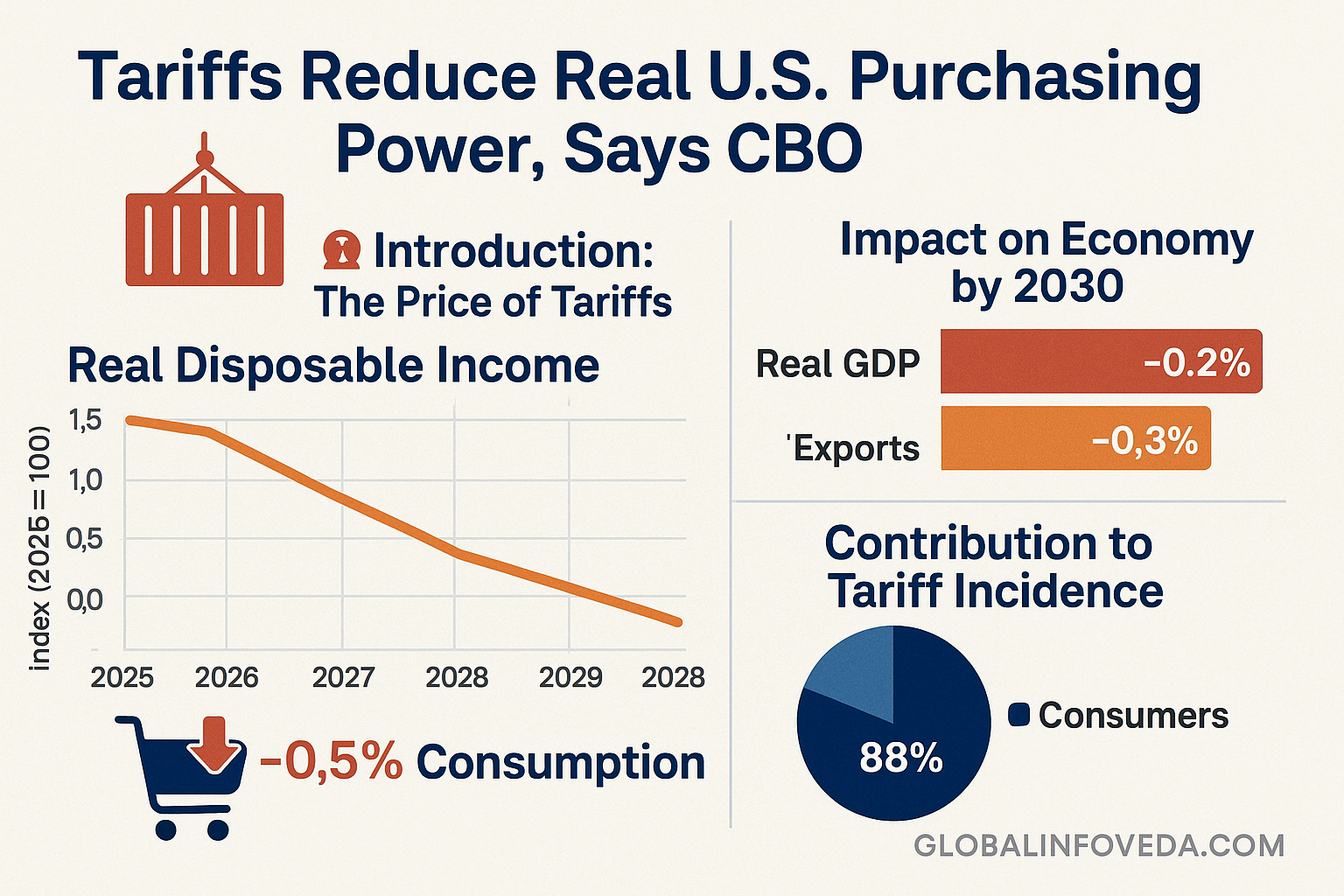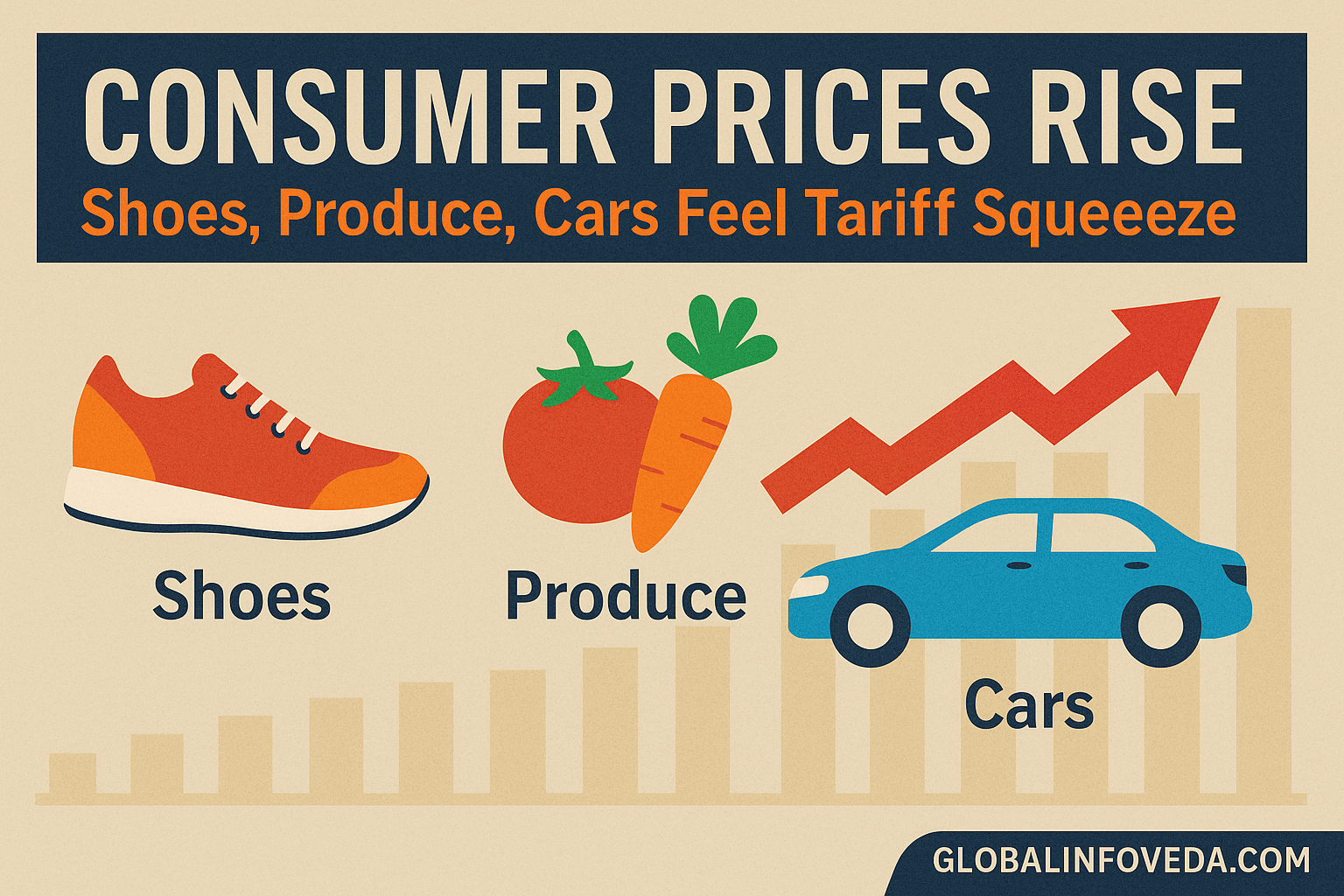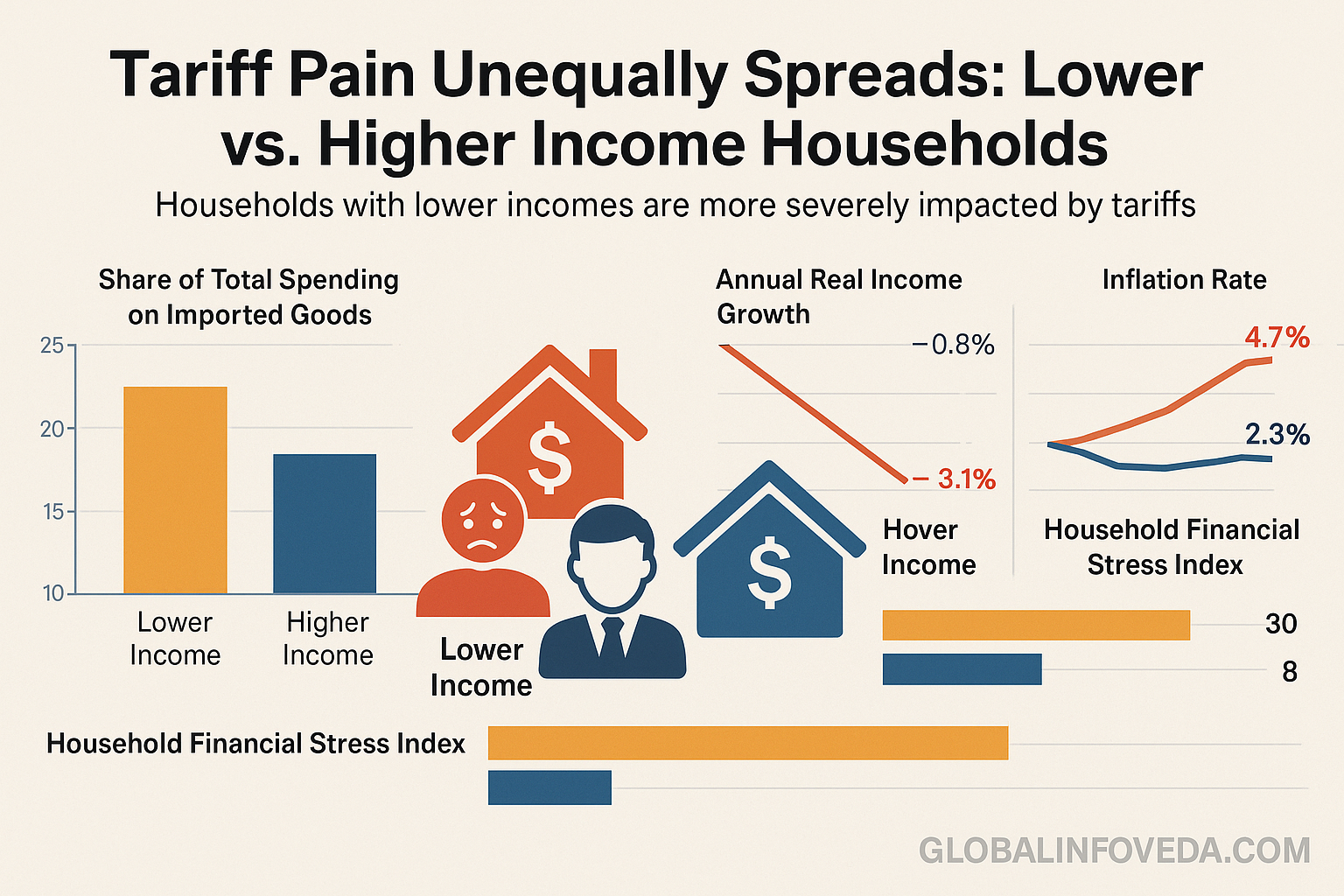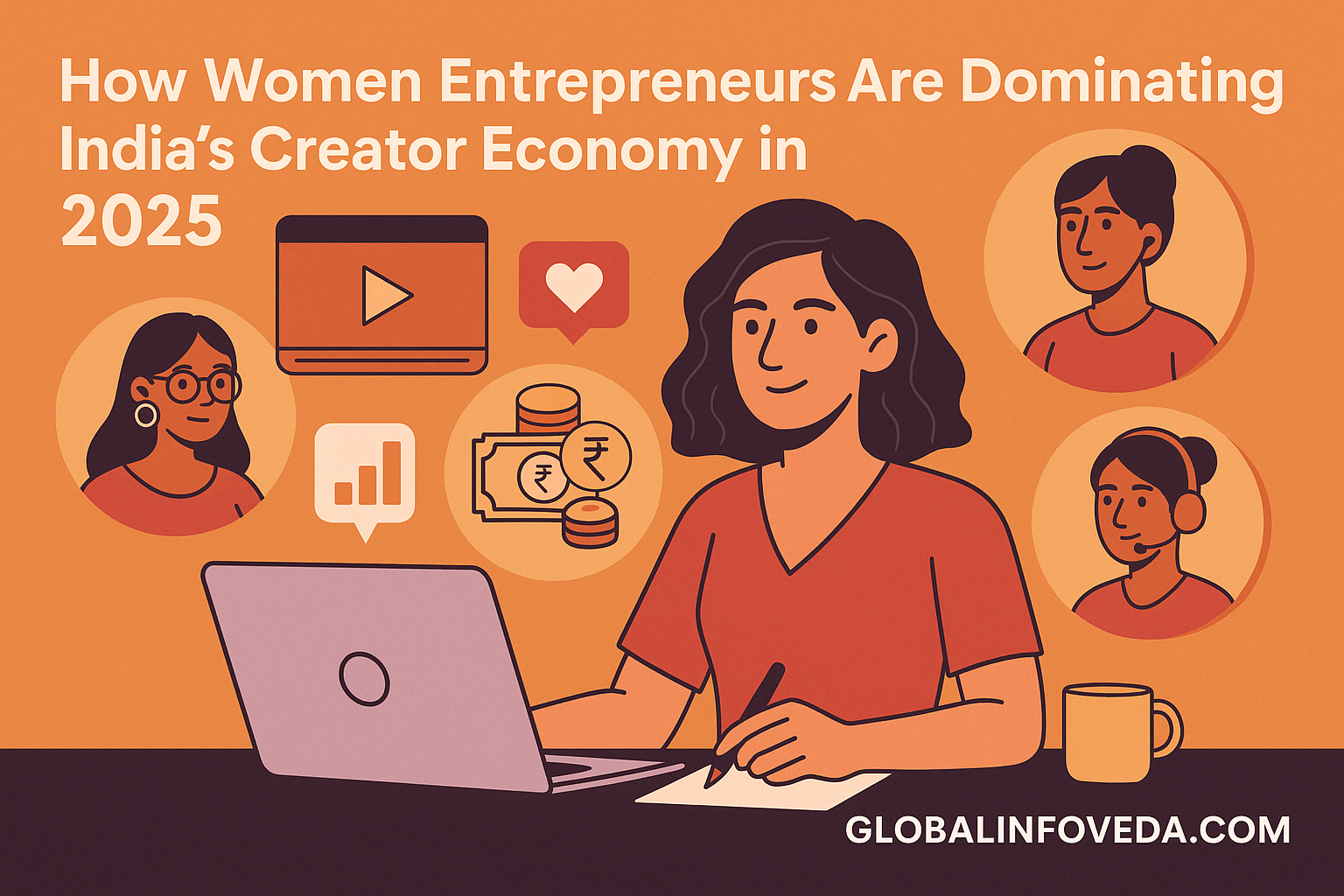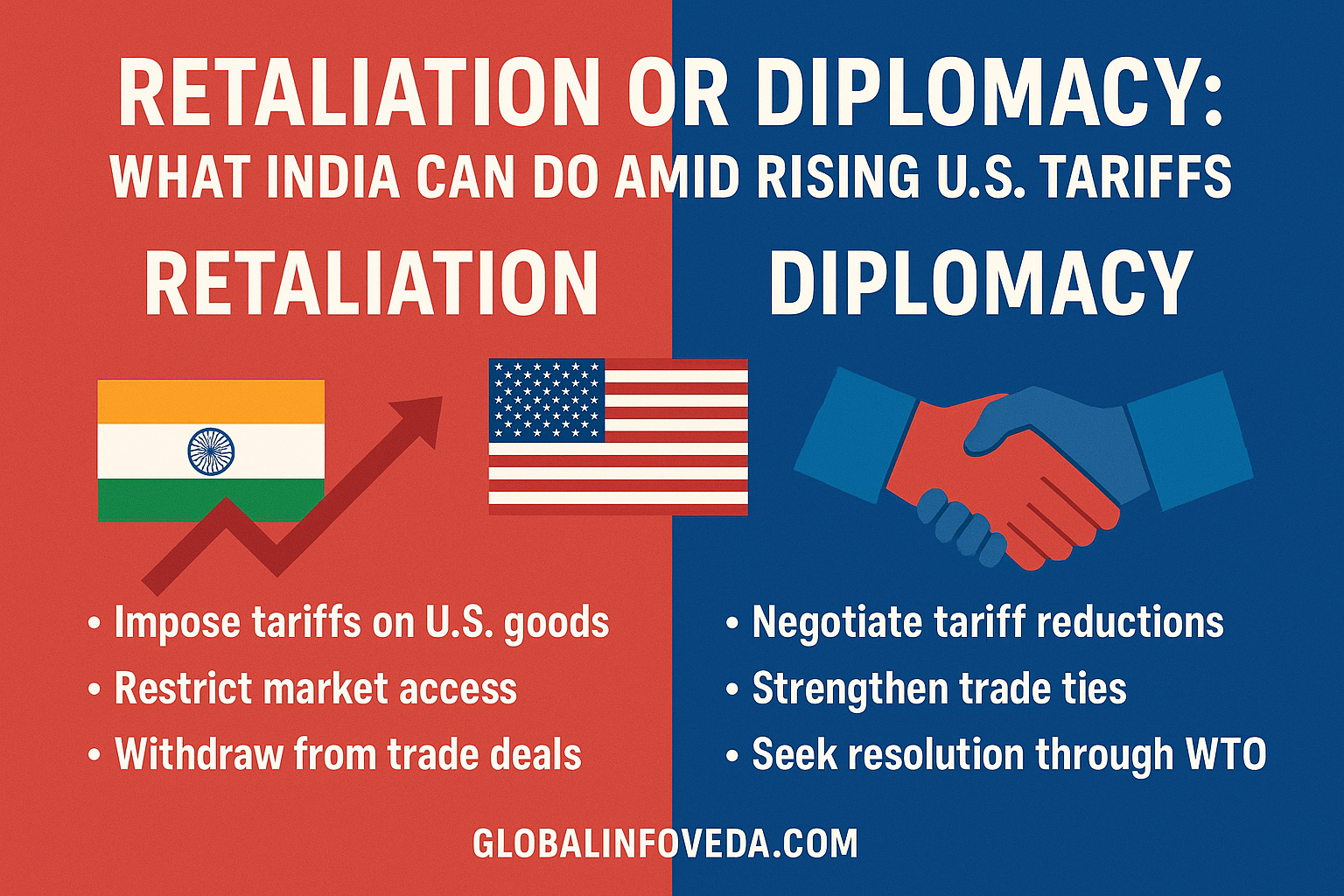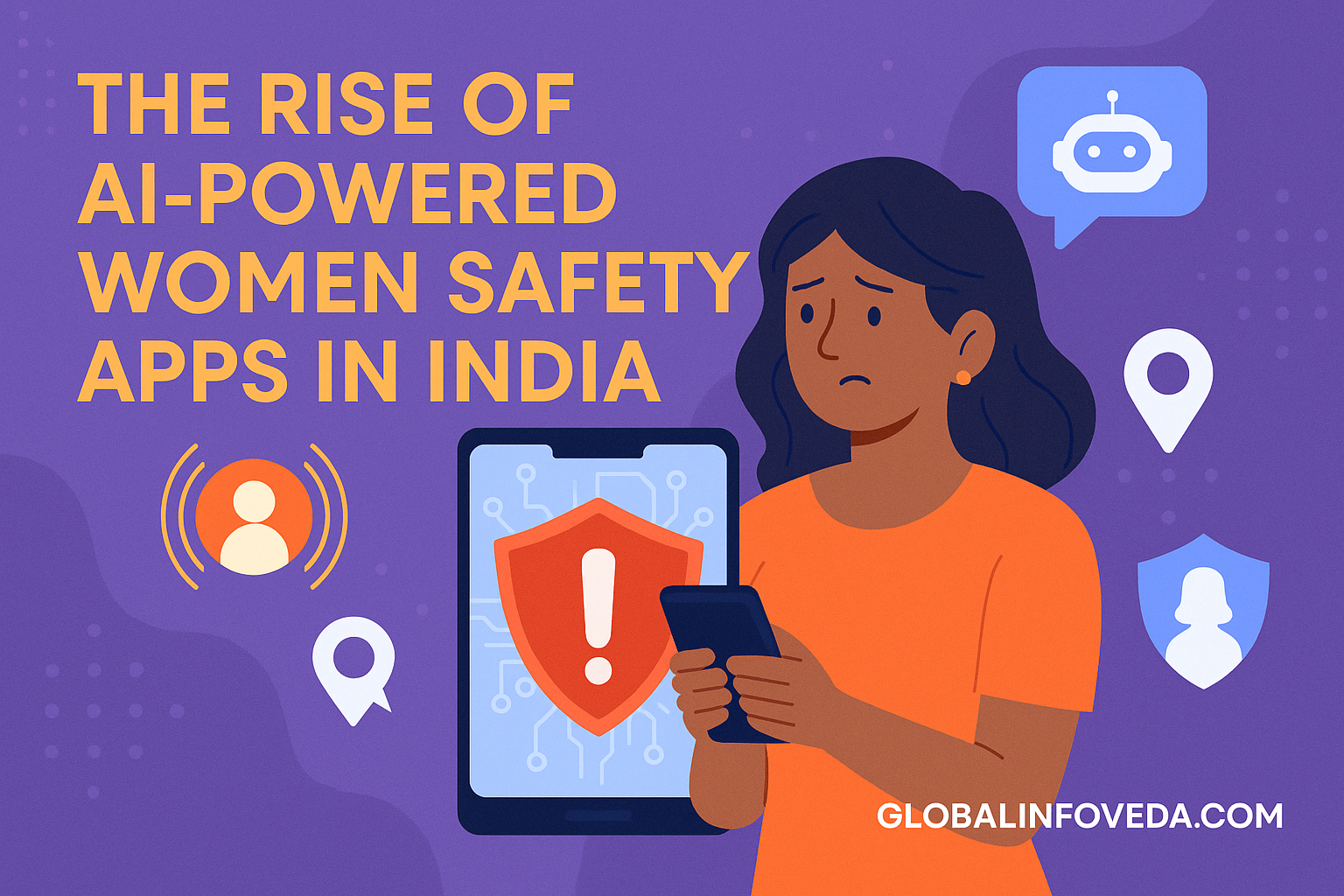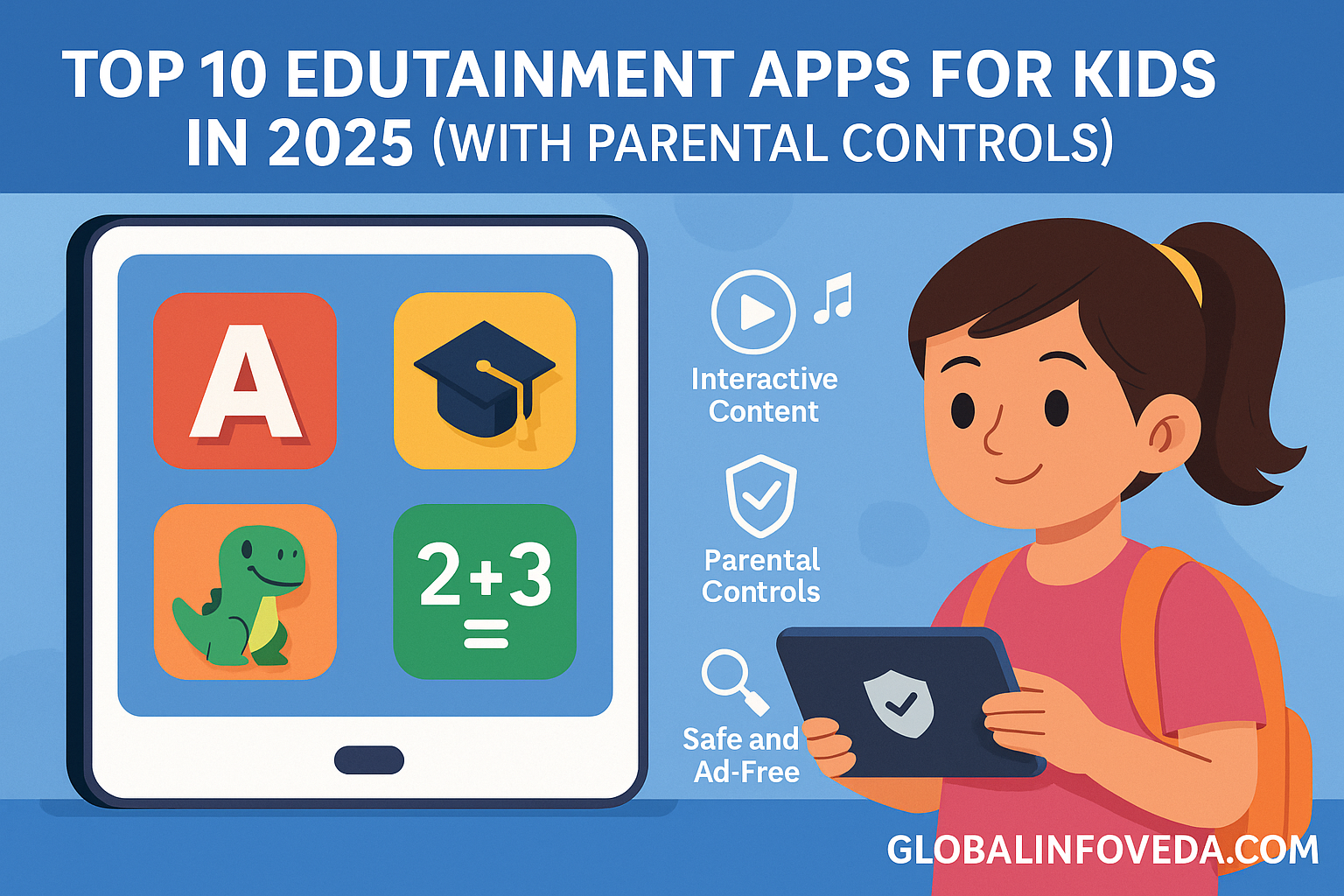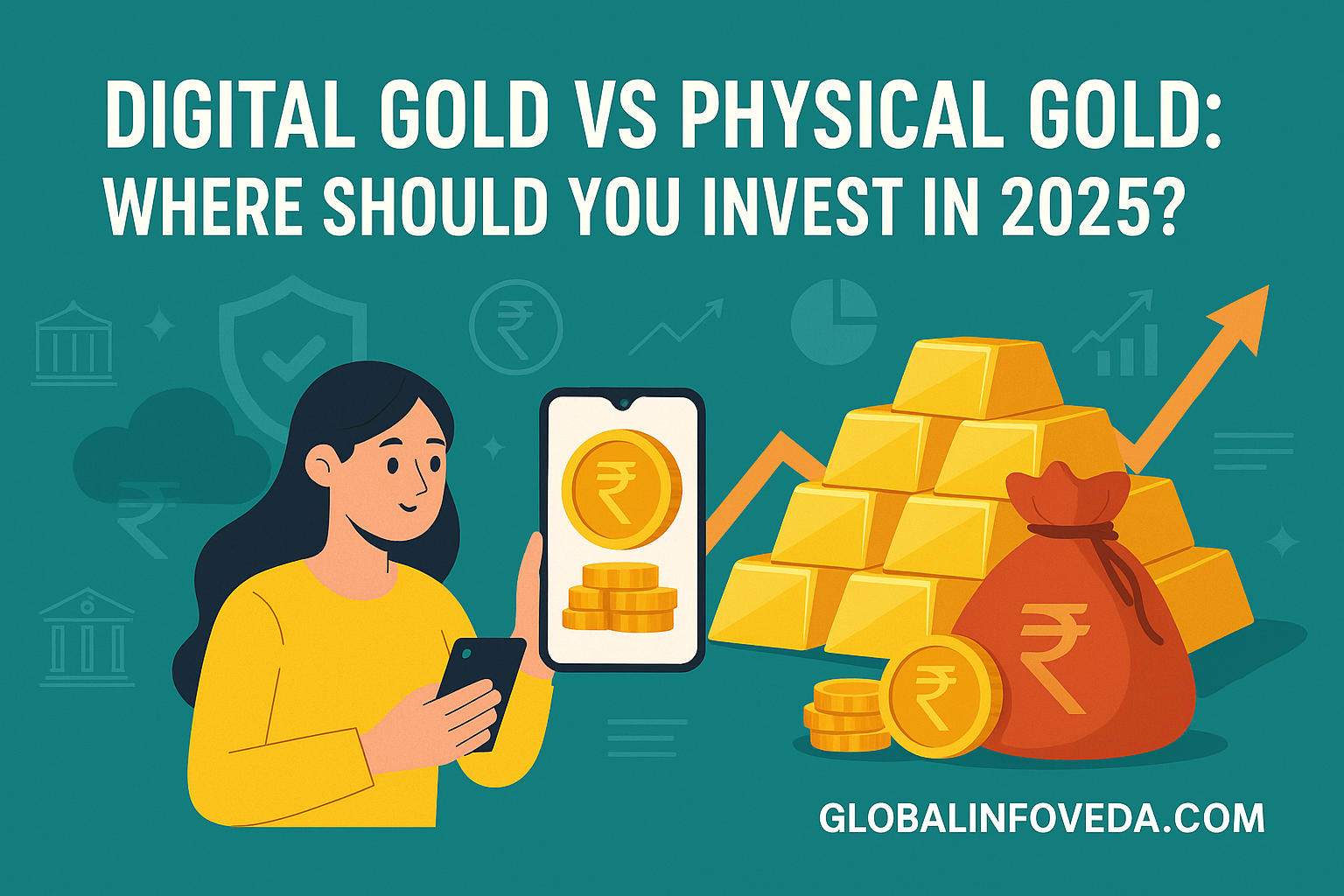🧠 Introduction
Mental health startups in India are redefining access to care in 2025 — from teletherapy in local languages to AI‑assisted triage, from corporate wellness bundles to school‑ready counselling kiosks. With urban stress, Gen‑Z anxiety and workplace burnout on the rise, the market is moving past inspiration quotes to measurable impact; wait‑time reductions, evidence‑based protocols, vernacular outreach and privacy‑by‑design. Yet, there’s nuance. Digital therapy is effective only when platforms ground interventions in sound clinical supervision, are aligned with Indian data laws and honour the Mental Healthcare Act (2017). This deep dive looks at product models, pricing, efficacy, ethics and rollout playbooks, for families, HR leaders, and founders — backed by India’s patchy connectivity, stigma and regional diversity.
Meta description: India’s mental health startups in 2025—teletherapy, AI triage, outcomes, privacy, costs, and playbooks for families, HR, and schools.
🧭 Why digital therapy in India is accelerating
India’s fledgling digital mental health is trapped at the intersection of infrastructure, policy and culture. UPI drove down the cost of micro‑payments, making ₹299–₹799 counselling sessions work for masses of people. Vernacular interfaces became widely adopted with Tier‑2/3 smartphone penetration. “The stigma was decreased by government initiatives, like Tele‑MANAS helplines and NHM‑aligned counsellors, and these created a baseline of free support that startups could provide structured therapy in addition to. Most crucially, remote schooling and work during the pandemic made video consults routine. The upshot: a tiered system in which crisis lines, guided self‑help, coach‑led programmes and licensed psychotherapy are all viable, provided platforms can get triage right and as long as they don’t push everyone into the same, lowest‑common‑denominator funnel.
🧩 What a modern mental health platform actually does
A strong mental health startup in 2025 is less a chat app and more an operating system for care:
- 🧭 Intake & triage: brief, validated screeners (PHQ‑9, GAD‑7, C-SSRS) served in English and regional languages with risk flags.
- 🧑⚕️ Clinical network: verified psychologists, psychiatrists, and coaches with clear scopes of practice; supervision logs.
- 🧠 Care plans: modular CBT, ACT, MBCT, trauma‑informed paths with weekly goals and relapse prevention.
- 🗣️ Language & culture: Hindi, Tamil, Bengali, Marathi, Telugu, Kannada, Malayalam, Gujarati, Odia, Punjabi support.
- 🔐 Privacy controls: consent, in‑app aliases, encryption, minimal data collection, and export/delete options.
- 📊 Outcomes: pre/post scores, symptom ladders, time‑to‑improvement charts, and drop‑off tracking.
- 🧯 Escalation: hotlines, Tele‑MANAS referral, and local emergency playbooks when risk is detected.
🧮 Care models at a glance
| 🔎 Model | When it fits | Typical monthly spend |
|---|---|---|
| Guided self‑help (app + coach nudges) | Mild stress, sleep, habit support | ₹199–₹599 |
| Therapist‑led care (video/phone) | Moderate anxiety/depression, grief | ₹1,200–₹3,500 |
| Psychiatry‑integrated (incl. meds review) | Severe, recurrent, or comorbid cases | ₹2,500–₹6,500 |
🧰 How AI in mental health helps (and where it shouldn’t)
- 🤖 Good fits: risk‑word detection in journals, session note summaries for clinicians, dialect‑aware chat triage, homework generators for CBT worksheets, and relapse‑risk nudges.
- 🧑⚖️ Hard limits: diagnosis belongs to clinicians; suicide risk decisions must never be delegated; AI outputs need human review.
- 🧪 Quality gates: bias audits across gender, caste, and language;
- 🔒 Safety: on‑device inference for sensitive text where feasible; strict logging for audit trails.
AI Therapy Apps vs. Human Counselors: The Future of Mental Health Support
🏥 The Indian regulation backdrop (what founders must internalise)
Mental Healthcare Act, 2017 (MHCA) is enshrining consent, confidentiality, rights, and the direction of information sharing at times of emergency was contained in it. Platforms should comply with Telemedicine Practice Guidelines (2020) on remote consults, and with sectoral privacy expectations under Indian law (and prepare for stricter data rules). Product copy needs to steer clear of un-backed medical claims. Of crucial importance is the fact that crisis pathways must be local—if a risk flag triggers in Imphal at 2 a.m., escalation as a generic email is not going to cut it.
🧑🤝🧑 Who’s being served in 2025—and how
- 🧑🎓 Students: school‑embedded counsellors plus chat support; parents looped in with consent; screen‑time and sleep modules.
- 🧑💼 Workplace: EAP 2.0—therapy credits, manager training, burnout monitors, and confidential referrals.
- 👵 Caregivers & elders: grief, dementia support, mobility‑friendly UIs; tele‑support blended with community health workers.
- 🧑⚕️ Clinicians: supervision rooms, automated note‑keeping, case‑mix dashboards.
- 🧍 LGBTQIA+: identity‑affirming providers, alias options, and harassment‑report flows.
🧠 Case story — vernacular therapy that changed adherence
A Chennai‑based platform rolled out Tamil and Telugu therapy cohorts with AI‑aided captioning. Attendance jumped because clients didn’t fear judgment for code‑mixing. PHQ‑9 scores dropped faster when homework prompts referenced local context (bus routes, cinema analogies). The learning: language is not a feature; it’s the backbone of engagement.
🧪 Case story — corporate wellness with outcomes, not posters
A Pune IT firm replaced generic workshops with therapy credits and manager coaching. A pilot tracked GAD‑7 and burnout indices quarterly. Within two quarters, help‑seeking doubled and attrition dipped in two high‑stress pods. The CFO kept the programme because productivity and retention offsets beat the line item.
Corporate Wellness 2025: How Companies Are Tackling Burnout
📐 Designing a hybrid care funnel that respects risk
- 🧭 Right door: ultra‑light onboarding, no forced surveys before a human chat.
- 🧲 Routing: green (self‑help), amber (coach + async therapist), red (therapist + psychiatrist).
- 🧯 Crisis: geo‑aware escalation to Tele‑MANAS and local numbers; duty‑of‑care scripts for support staff.
- 🧪 Proof: pre/post measures, no vanity metrics; publish de‑identified outcomes.
🧱 Stigma, culture, and family dynamics
Digital therapy in India has to accommodate a joint‑family lens, parental expectations and gendered burdens. A good platform can encourage family sessions (with consent), and teach boundary‑setting, offering modules with vernacular psycho‑education. For young adults, the combination of fake handles and wallet-friendly plans lessens fear of discovery. Slots for women are in the daytime and with female therapists and childcare-aware scheduling to cut down on drop-offs. Farmers pilots work well when ASHA or school counsellors lead with an in-person demonstration before handing over to chat.
🧪 My take: what separates signal from noise in mental health startups
- 📊 Measure what matters: anxiety/depression scales, not likes.
- 🧑⚕️ Clinical governance: supervision hours logged, case reviews real.
- 🧠 Context: local metaphors, festivals, and workweeks in content.
- 🔐 Privacy: deletion buttons you can find; clear data maps.
- 🔁 Continuity: handoffs between coach → therapist → psychiatrist without re‑telling trauma.
Digital Detox 2025: Can Cutting Screen Time Restore Your Brain Health?
🧮 Pricing patterns in 2025 (B2C and B2B)
| 💳 Plan | What you get | Typical range |
|---|---|---|
| B2C starter | 2 sessions + chat check‑ins | ₹999–₹1,999/month |
| B2C therapy | 4–6 sessions + worksheets + SOS flow | ₹2,999–₹5,999/month |
| B2B EAP | 3–6 credits/employee + manager labs | ₹399–₹999/employee/month |
🔒 Privacy and data protection that earns trust
- 🔐 Consent: plain‑language toggles; no auto‑opt‑ins.
- 🗂️ Data minimisation: collect only what the care plan needs; keep payment data separate.
- 🧪 Audits: third‑party security tests; publish summaries.
- 🧰 Controls: session‑level anonymity, export, and delete.
- 🧭 Breach protocol: notify quickly; rotate keys; offer guidance.
🧑⚕️ Therapist supply: the hardest constraint
India still faces a scarcity of licensed clinicians. Smart startups expand access by building supervision ladders, co‑creating content with NIMHANS‑trained experts, and partnering with universities for practicum pipelines. Quality means saying no to over‑expansion when case‑mix outpaces clinical bandwidth.
🧗 Adoption barriers and practical fixes
- 🧾 Affordability: bundle credits, sliding scales, and UPI‑friendly micro‑plans.
- 🧠 Awareness: regional campaigns with vernacular creators and alumni stories.
- 🛰️ Connectivity: audio‑first sessions, low‑bandwidth modes, and SMS nudges.
- 🧏 Accessibility: TTS, captioning, font options, and screen‑reader tests.
- 🧭 Trust: verified profiles, real names for clinicians, and MHCA‑aligned policies.
Mental Health Trends Gen‑Z & Beyond Are Starting in 2025
🧭 Comparing care settings in India
| 🏥 Setting | Strength | Risk to watch |
|---|---|---|
| Tele‑therapy | Reach, privacy, flexible slots | Missed non‑verbals; tech fatigue |
| In‑person clinics | Depth, body‑language, crisis handoffs | Travel time; stigma at reception |
| Hybrid | Best of both; stepped care | Requires coordination & data hygiene |
🧬 Outcomes: what improvement looks like
Platforms that publish pre/post outcomes change the conversation. Good dashboards show PHQ‑9 drops of 3–6 points in four to eight weeks for mild‑moderate cases, reduced no‑shows, and lower relapse at 90 days. For severe cases, integration with psychiatry stabilises sleep and energy before deeper work. Outcomes also include functioning—attendance, daily routine, and social activity—not just symptom scores.
🧰 Founder checklist (build responsibly in 2025)
- 🧭 Start with one persona (e.g., young working women in Tier‑2) and a single protocol (e.g., CBT‑I for sleep).
- 🧩 Co‑design with clinicians; pay for supervision time; ship fewer, safer features.
- 🧪 Run bias tests; add vernacular intents; measure retention beyond day‑30 vanity.
- 🔗 Integrate Tele‑MANAS and referral paths; publish your escalation SOP.
- 🔒 Document your data map; make deletion/export one tap.
🎒 Parent and caregiver guide
- 🧭 Open a gentle door: “Would it help to speak to someone neutral?” beats “You need therapy.”
- 🧾 Pick verified providers: check qualifications and states of practice.
- 🧪 Start with a trial: two sessions + home practice; review comfort and fit.
- 🛡️ Stay in the loop (with consent): ask about sleep, routine, and support needs rather than content of sessions.
- 🧰 Crisis fridge note: helplines, local ER, and trusted neighbours.
🧑💼 HR leader playbook (zero theatre, real care)
- 🧭 Budget for therapy credits, not posters.
- 🧑🏫 Train managers to recognise distress and route to confidential help.
- 📊 Track outcomes (de‑identified): utilisation, return‑to‑function, and burnout decline.
- 🧪 Include vernacular and off‑hours slots for shift workers.
- 🔒 Ensure privacy clauses prevent employee surveillance.
🧪 Case story — school mental health with kiosks + tele support
A district in Karnataka set up counselling kiosks with private booths and headphones. Students book five‑minute check‑ins that route to human counsellors when red flags appear. Teachers receive class heat‑maps with absenteeism and mood trends (no names). The kiosks reduced stigma by making help as normal as the library. Parents got vernacular guides on sleep and study routines.
🌐 Rural pilots that actually travel
When a startup trained ASHA workers to do first‑line psychoeducation and refer to tele‑therapy, engagement climbed. Offline kits (printed worksheets + IVR reminders) bridged patchy data. Market‑day booths normalised conversations, and UPI QR codes made small payments easy. The quiet lesson: meet people where they already gather.
🔍 Product quality signals for users
- 🧑⚕️ Clear clinician bios with degrees and languages.
- 🔐 Obvious privacy controls and delete buttons.
- 🧭 Transparent pricing and cancellation.
- 🧪 Outcome stories with real measures, not vibes.
- 🧯 Crisp crisis paths and reply times.
🧭 City‑tier nuances
- 🏙️ Metros: high demand, specialty care (trauma, couples, LGBTQIA+).
- 🏘️ Tier‑2: language wins—vernacular therapy and evening slots.
- 🏞️ Rural: audio‑first, kiosk pilots, ASHA‑led orientation; partner with PHCs.
India’s Mental Health Startups: How Therapy Is Going Digital in 2025
🧑⚖️ Legal & ethical corner
- 🧾 Follow MHCA 2017: rights, consent, and advance directives.
- 🧑⚕️ Respect scopes: coaches ≠ clinicians; don’t blur.
- 🔍 Advertise responsibly: no miracle claims; show limits.
- 🧭 Data: store in India when feasible; document processors.
- 🧯 Crisis: keep local helplines current; test escalation monthly.
📈 What investors should ask in diligence
- 🧠 Clinical governance: supervision ratios, adverse‑event logs.
- 📊 Unit economics after drop‑offs and refunds.
- 🧭 Market depth beyond metros.
- 🧪 Outcome publication cadence.
- 🔒 Security posture and audits.
🛠️ Building for inclusion
- 🧏 Accessibility: captions, TTS, dyslexia modes.
- 🧕 Cultural sensitivity: content vetted for regional norms.
- 🧒 Youth safeguards: parental consent flows; school MOUs.
- 🧑🦽 Mobility‑aware UIs: big targets, low clutter.
- 🧠 Neurodiversity: alternate input (draw/voice), flexible pacing.
🧮 Benchmarking features (choose with care)
- 🧭 Triage quality — Does the flow route users to the right level of care (self‑help, therapist, or psychiatry) with validated screeners and a human review step for any elevated risk? Look for clear disclosures and the option to skip surveys when distressed.
- 📊 Outcomes transparency — Are PHQ‑9/GAD‑7 changes, return‑to‑function, and no‑show rates published regularly (de‑identified)? A credible platform shows stable improvements across quarters, not cherry‑picked wins.
- 🔐 Privacy posture — Are consent, delete/export, and encryption easy to find? Is payment data stored separately and access role‑based for staff? If you can’t locate controls in two taps, trust will erode.
🧭 How to try digital therapy this month (personal action plan)
- 🧪 Take a validated screener to gauge baseline; save your score.
- 🧑⚕️ Shortlist two platforms with transparent bios and clear privacy.
- 🧾 Book two sessions; notice rapport and homework fit.
- 📊 Track sleep, energy, and worry frequency weekly; expect small steps.
- 🧯 Keep a crisis card at home; share with a trusted friend.
❓ FAQs people ask in India
- 💡 Is online therapy effective? For mild‑moderate cases, tele‑therapy with structured protocols shows solid outcomes; severe cases need psychiatry integration.
- 💡 How do I pick a therapist? Match language, modality (e.g., CBT, ACT), and availability; test fit over two sessions.
- 💡 Will my employer know? Not if contracts enforce confidentiality; choose providers with strong privacy stances.
- 💡 What about cost? UPI‑friendly micro‑plans and EAP credits reduce out‑of‑pocket.
- 💡 Can teens use it? Yes—with guardian consent and youth‑safe coaches.
🧭 For founders: metrics that matter in boardrooms
- 📈 Clinical outcomes per cohort, not vanity engagement.
- 🔁 Retention to session 4 and 8.
- 🧭 Triage accuracy (false‑negatives near zero).
- 🔒 Privacy incidents (target: none).
- 🧑⚕️ Supervision hours per clinician per month.
🧗 What could go wrong—and how to buffer
- ⚠️ Over‑automation: keep humans in the loop.
- 🧭 One‑size content: localise or lose adherence.
- 🧠 Therapist burnout: cap caseloads; provide supervision.
- 🔒 Data drift: regular audits; kill features that over‑collect.
- 🧾 Payment friction: support UPI mandates and flexible billing.
🧩 Integration with public systems
Smart startups align with Tele‑MANAS, PHCs, and school counsellors. Shared protocols for referrals, crisis handoffs, and follow‑ups make the ecosystem safer. Where possible, co‑create materials with NIMHANS‑trained educators so tone and technique fit Indian settings. This is where public goods meet private craft.
📊 Market landscape 2025: size, segments, and momentum
India’s mental health startups are housed in a milieu that is multi‑faceted and rapidly formalising. On the demand side, Gen-Z and millennial consumers are leading tele-therapy experiments following pandemic-era legitimsiation of video consults, while corporates snap-up bundled EAPs to stanch burnout and turnover. On the supply side, there is a small but growing pool of licensed clinicians, added to coach networks and psychiatry partners to service stepped care. The macro rails — UPI, cheap data and smartphone availability — reduce friction and public programmes like Tele‑MANAS put new help‑seekers in touch with remote support. This opens the door to a larger addressable audience beyond metros to tier‑2/3 belts where vernacular UIs and audio‑first flows drive adoption. Momentum for 2025 moves from awareness to outcomes and privacy as differentiators: users are choosing based on platforms that feel safe, speak their language, and demonstrate clear progress.
🧬 Clinical frameworks that actually travel in India
‘One-Size-Fits-All’ Doesn’t Fit Good digital therapy in India doesn’t reinvent the science; it localizes it. CBT is the foundation for much of the play (work with thought records, behaviour activation and graded exposure) and ACT offers acceptant and values-based options for young adults who feel they must choose between family and their own autonomy. MBCT techniques are particularly beneficial for ruminating and sleep. The translation work is cultural: turning “behavioural activation” into daily activities that a student in Chennai or a caregiver in Ranchi can try, creating homework that draws on bus timetables, cricket metaphors and festival schedules. The good products scaffold tasks in vernacular, permit code-switching, and let the therapist tailor metaphors without breaking templates. Crucially, platforms need to protect against the over‑scaffolding and over‑coaching of users; too many clues can rub out users’ agency. The plan is well-constructed, with weekly sessions and little home practices, along with relapse prevention check‑ins, that don’t over-tax the user.
🧱 Product architecture for trustworthy care
- 🧩 Clinical core: template libraries for CBT/ACT/MBCT, shared psychoeducation, and therapist note‑keeping with supervision hooks.
- 🧭 Triage brain: validated screeners, risk flags, and human‑in‑the‑loop decisions; red‑path playbooks with Tele‑MANAS and local helplines.
- 🔒 Data layer: encryption, role‑based access, audit logs, and clear consent/delete controls; store payment identifiers apart from care data.
- 🗣️ Vernacular layer: human‑reviewed translations, dialect A/B checks, and audio‑first fallbacks for patchy connectivity.
- 🔗 Integrations: HRIS for EAP, school MIS, PHC referrals, and pharmacy e‑prescription rails for psychiatry partners.
🧮 EAP ROI that finance leaders can trust
When it comes to workplaces, the business case for therapy credits is strongest when pegged to the cost of replacing workers and of lost hours due to absenteeism, not to their so-called “happiness scores.” Take a 500‑person engineering org with high sprint pressure. Even if just a single‑digit number of resignations in rare roles are averted per annum and a couple of percentage points are shaved off burnout‑fuelled absenteeism the EAP pays for itself in the costs avoided from placements, project continuation and less manager escalations. The secret is secrecy — once employees are aware of monitoring, use falls and so too does the ROI. Share de‑identified utilisation and outcomes quarterly, train managers to route rather than pry, and keep procurement (and its overindulged procurement managers) the hell away from micromanaging the care.
🧑🏫 School & college blueprint: from poster to practice
School mental health is effective when support is part of the folds, not attached with a staple. A practical blueprint: Avoid ‘hard thinking’ on security with PowerPoint; ‘smart’ the teachers on risk signs and safe language; dot counselling kiosks or private rooms around the bend for quick check-ins; timetabling small‑group sessions weekly on attendance or sleep; and distributing among families vernacular guides on routines, device hygiene and study breaks. Colleges can install a peer‑listener club trained to route concerns, with Tele‑MANAS and campus counsellors as backstops. The golden rule is consent and dignity — no classroom call‑outs, no public dashboards with names, and simple privacy promises that help ensure that students know it’s safe to get help early.
🧑⚕️ Therapist well‑being and supervision ladders
Concern: Licensed clinicians are in short supply, burnout is a risk. Sustainable platforms hard‑code supervision hours, cap caseloads, and leave a bench for emergent surges following layoffs, or exam seasons. Group supervision develops pattern recognition, and one‑to‑one supervision guards against drift and compassion fatigue. At the same time, rotations of patients from high-acuity to routine cohorts avoid overwhelming. Clinician UX is important as well: note templates, auto‑summaries (checked by humans) and a quick view of risk flags mean less administrative overhead without the dumbing down of care. When therapists feel supported and seen, results get better and turnover goes down — modest but compounding returns.
🧭 City and state playbooks
- 🏙️ Bengaluru — product‑savvy users, strong demand for sleep and anxiety protocols; evening slots fill fastest around release cycles.
- 🏙️ Mumbai — commute fatigue and housing stress make short tele‑therapy slots popular; weekends need strict no‑work boundaries.
- 🏙️ Delhi‑NCR — exam prep culture + high‑stakes jobs create mixed caseloads; vernacular support (Hindi) is non‑negotiable.
- 🏞️ Kerala — high health literacy enables psychiatry‑integrated care and postpartum support groups.
- 🏞️ Punjab — substance‑use comorbidity needs tight referral loops and family‑involved counselling.
- 🏞️ Northeast — connectivity gaps call for audio‑first flows and campus partnerships; cultural sensitivity is paramount.
🧪 Case story — postpartum programme, Malappuram
A Kerala startup built a postpartum track blending tele‑therapy, lactation consults, and sleep coaching. Sessions were offered in Malayalam with flexible daytime slots. Outcomes included improved sleep, reduced intrusive thoughts, and healthier partner communication. The secret wasn’t a novel app—it was joining the dots between primary care, family support, and non‑judgmental vernacular counselling.
🧪 Case story — family‑inclusive care, Ludhiana
In Punjab, a platform piloted family sessions for young adults with anxiety and mild substance issues. Therapists used ACT tools to align values across the household and set boundaries. Relapse dropped when parents learned to ask about sleep and routine rather than interrogate triggers. Local clinicians coordinated with a PHC for swift referral when severity rose, proving that digital care scales best when rooted in community networks.
🧭 Research gaps & what to watch in 2025–26
- 🔬 Longitudinal evidence beyond eight weeks—what sticks at six months for different cohorts?
- 🗣️ Dialect depth—do platforms truly serve Marathi/Kannada/Tamil dialects or just translate headlines?
- 📈 Outcomes across caste/gender—equity audits must move from slogans to numbers.
- 🔄 Stepped‑care handoffs—how often do users repeat their story, and how can that be reduced ethically?
- 🧠 AI safety—hallucination‑proof explainers and better human‑override UX.
🧯 Anti‑patterns founders should avoid
- 📣 Trauma‑bait marketing that pathologises normal stress for clicks.
- 🧰 Feature sprawl instead of sharpening a single protocol for one persona.
- 🧱 Walled gardens that block referrals to Tele‑MANAS or PHCs.
- 🔒 Dark patterns in consent or cancellation flows.
- 🧑⚕️ Under‑supervised junior clinicians pushed into high‑acuity cases.
🧭 Insurance & OPD tie‑ups: the next frontier
Insurers are increasingly offering OPD add‑ons comprising tele‑therapy credits and preventive care. For mental health start-ups, this looks like building ICD/DSM‑mapped documentation, clean invoices, and privacy‑preserving data shares. How it helps employers Employees covered under group OPD benefits will be directed to licensed clinicians with no out‑of‑pocket spikes. The potential is early care at scale; the danger is over‑bureaucratisation. Successful teams create the least amount of paperwork possible to open claims while maintaining human and confidential sessions.
🧪 Measurement methodology that earns trust
We should ensure that there is concordance between measurement systems and the reality of patient management, not between systems of measurement and cosmetic vanity. Use pre/post scales, but also monitor functioning (attendance, sleeping pattern, social activity) and reasons for dropping off. PROFILE language, cohort and severity if segment in order to not mask gaps. Quarterly publication of de‑identified cohort charts; annual invitation to an external clinical reviewer. Honest misses create more credibility than polished claims. Over time, people and employers will turn to digital therapy platforms that display humility, rigor and the capacity for continuity learning.
📚 Sources
- Ministry of Health & Family Welfare (MoHFW), Govt of India — Tele‑MANAS: https://telemanas.mohfw.gov.in/
- Mental Healthcare Act, 2017 — Full Text (Govt of India): https://egazette.nic.in/WriteReadData/2017/175248.pdf
- NIMHANS — National Institute of Mental Health & Neurosciences: https://nimhans.ac.in/
- World Health Organization (WHO) — Mental health: strengthening our response: https://www.who.int/news-room/fact-sheets/detail/mental-health-strengthening-our-response
🧠 Final insights
India’s mental health startups are most powerful when they marry vernacular empathy with clinical depth and privacy‑first engineering. The winners in 2025 will not be those that are the best at shouting, but will be those that route risk wisely, publish outcomes and make support feel as natural as booking a cab — all while ensuring humans are in charge. If you’re a family, take one simple step; if you’re HR, support real therapy credits; if you’re a founder, gain trust with discretion. Done well, digital therapy in India becomes something more than hype; it becomes a true second front door to care — open, humane, measurable.
👉 Explore more insights at GlobalInfoVeda.com








